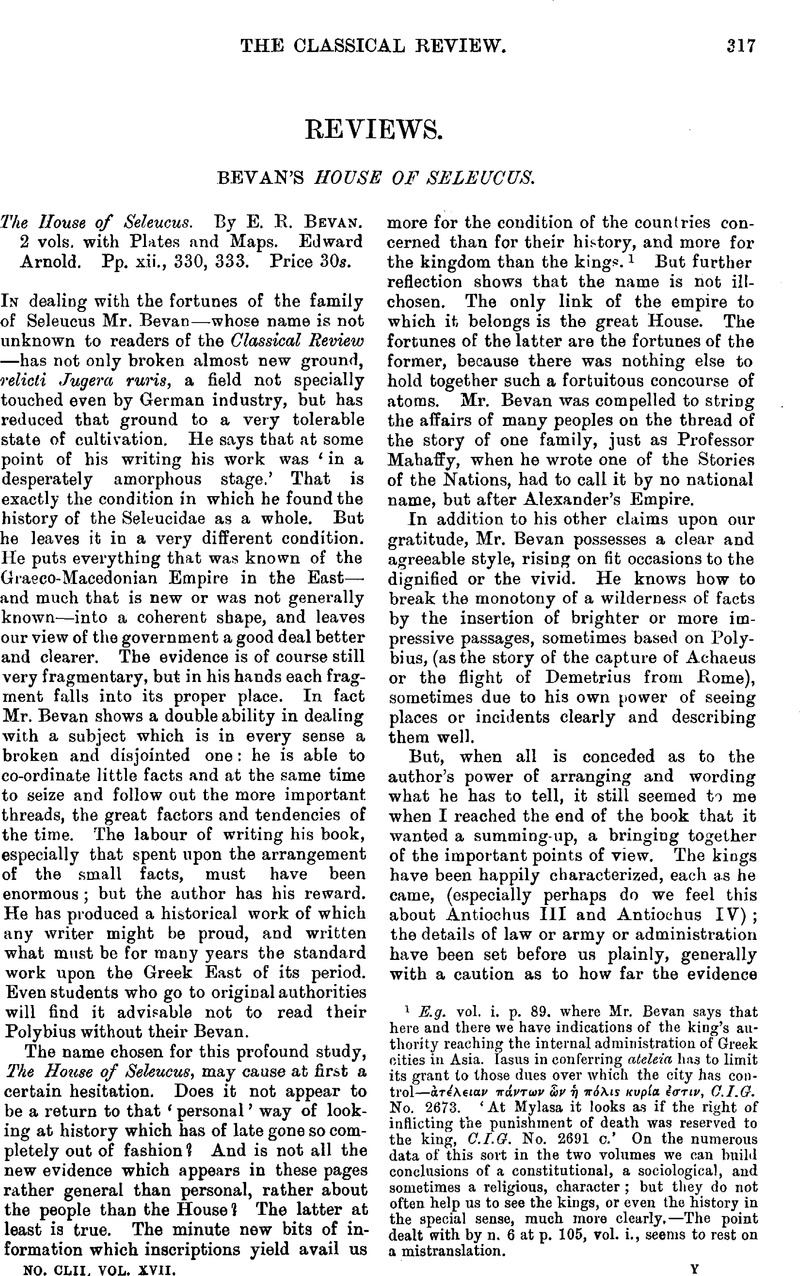Article contents
Bevan's House of Seleucus - The House of Seleucus. By E. R. Bevan. 2 vols. with Plates and Maps. Edward Arnold. Pp. xii., 330, 333. Price 30s.
Published online by Cambridge University Press: 27 October 2009
Abstract

- Type
- Reviews
- Information
- Copyright
- Copyright © The Classical Association 1903
References
page 317 note 1 E.g. vol. i. p. 89. where Mr. Bevan says that here and there we have indications of the king's authority reaching the internal administration of Greek cities in Asia. Iasus in conferring ateleia has to limit its grant to those dues over which the city has control —![]() , C.I.G. No. 2673. ‘At Mylasa it looks as if the right of inflicting the punishment of death was reserved to the king, C.I.G. No. 2691 c.’ On the numerous data of this sort in the two volumes we can build conclusions of a constitutional, a sociological, and sometimes a religious, character; but they do not often help us to see the kings, or even the history in the special sense, much more clearly,—The point dealt with by n. 6 at p. 105, vol. i., seems to rest on a mistranslation.
, C.I.G. No. 2673. ‘At Mylasa it looks as if the right of inflicting the punishment of death was reserved to the king, C.I.G. No. 2691 c.’ On the numerous data of this sort in the two volumes we can build conclusions of a constitutional, a sociological, and sometimes a religious, character; but they do not often help us to see the kings, or even the history in the special sense, much more clearly,—The point dealt with by n. 6 at p. 105, vol. i., seems to rest on a mistranslation.
page 320 note 1 Something of this sort was the boast of Antigonus I (Plutarch, Dem. 3); but his son Demetrius (Poliorcetes) did not continue to show the world a delightful picture.
page 321 note 1 Two well-known passages of Livy, cited in these volumes, speak plainly of this degeneration: but they were written with a purpose.
page 321 note 2 ‘The Deification of Kings in the Greek Cities,’ prompted a valuable paper by Mr. Bevan in the English Historical Review, Oct., 1901, and he returns to the subject in these volumes (I. 125–6, 177). But his survey of the facts begins with Alexander only, whereas, even if we do not look to anthropology or folk-lore for help, we ought at least to go as far back as the career of Lysander. ![]() (Plut. Lys. 18). The subject seems to be passed over in Mr. Bevan's index.
(Plut. Lys. 18). The subject seems to be passed over in Mr. Bevan's index.
- 1
- Cited by




